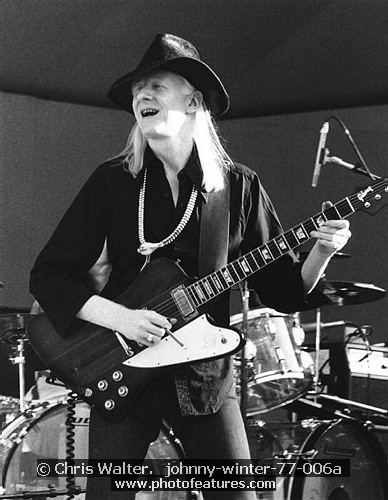

However, Winter's Raisin' Cain (1980) failed to chart and marked the end of his Columbia contract. Amid the albums he produced and played on for Waters, Winter recorded his own Nothin' But the Blues (1977), for which he was accompanied by Waters's band. Also signed to Blue Sky was Muddy Waters, a fortunate coincidence. Captured Live! (1976) was on Blue Sky Records, a custom label within Columbia created by Steve Paul. He would not make another album until Still Alive and Well (1973), a top 30 effort that featured Silver Train, written for him by Mick Jagger and Keith Richards.īack in the saddle, Winter cut Saints & Sinners (1974) and John Dawson Winter III (1974, including Rock & Roll People, written for him by John Lennon). "At that point, heroin was the only way we could stay on the road and make it," he said later. However, shortly afterwards Winter was floored by heroin addiction and hospitalised. Calling themselves Johnny Winter And, they released a studio album that fared poorly, and a live follow-up that went to No 40 and was certified gold. In 1970 Winter was dissatisfied enough with his band to drop them in favour of the McCoys, now older and wiser than the bubblegum pop band who recorded Hang on Sloopy, and featuring the talented guitarist and songwriter Rick Derringer. The Progressive Blues Experiment had reappeared just before his Columbia debut, and further non-Columbia releases included The Johnny Winter Story, First Winter and About Blues.

The follow-up, Second Winter, appeared in November 1969 and reached 55, but Winter's progress was being impeded by a stream of reissues of his older recordings on various labels. Paul set up a bidding contest between record companies that was won by Columbia, resulting in the debut album Johnny Winter (1969) reaching 23 on the charts. Winter found himself pursued by the New York club owner Steve Paul, who had read the article and launched a campaign to become Winter's manager (which he eventually did). Winter was written up alongside names such as Janis Joplin, Steve Miller and the Sir Douglas Quintet, and was memorably described as "a 130lb cross-eyed albino with long fleecy hair playing some of the gutsiest fluid blues guitar you have ever heard". He was then playing with his own trio, completed by the drummer Red Turner and the bassist Tommy Shannon, which had recently recorded the album The Progressive Blues Experiment on Austin's Sonobeat label. Winter was a regional star in the US south, but major success came knocking in the wake of a 1968 article in Rolling Stone magazine about the Texas music scene. In 1966 Johnny hit the Billboard Hot 100 with a version of Harlem Shuffle, which he recorded with the Traits. Between 19 he played regularly across the deep south with Black Plague (featuring Edgar) and his own band It and Them (also known as The Crystaliers). In the early 60s Johnny recorded numerous singles for such local labels as Frolic, Diamond and Goldband, and scored a local hit with Eternally, distributed by Atlantic. In 1962 Johnny formed Johnny and the Jammers, with Edgar on keyboards.
JOHNNY WINTER YOUNG TV
In 1959 the Winter brothers, already known from local talent and TV shows, cut the singles School Day Blues and You Know I Love You for the Houston label Dart Records. The pair began playing music before they went to school, Johnny initially trying the clarinet before switching to the ukulele and guitar while Edgar played keyboards. Both Johnny and his younger brother Edgar were born with albinism. Son of John and Edwina, Winter was a native of Beaumont, Texas. "The high point of my career was working with Muddy," Winter reflected. Muddy "Mississippi" Waters – Live (1979) completed the Grammy hat-trick. The album won a Grammy for best blues album, and when Winter produced Waters's follow-up, I'm Ready, it won another. It was when the blues veteran Muddy Waters asked Winter to produce his comeback album, Hard Again (1977), that Winter felt he had finally got back in touch with his blues roots, after several years of playing a flashy rock-blues mixture to arena-sized crowds. It took Winter several years of working with different musicians and musical styles, as well as nine months of treatment for heroin addiction in the River Oaks hospital in New Orleans, before he could find what he was looking for.


 0 kommentar(er)
0 kommentar(er)
